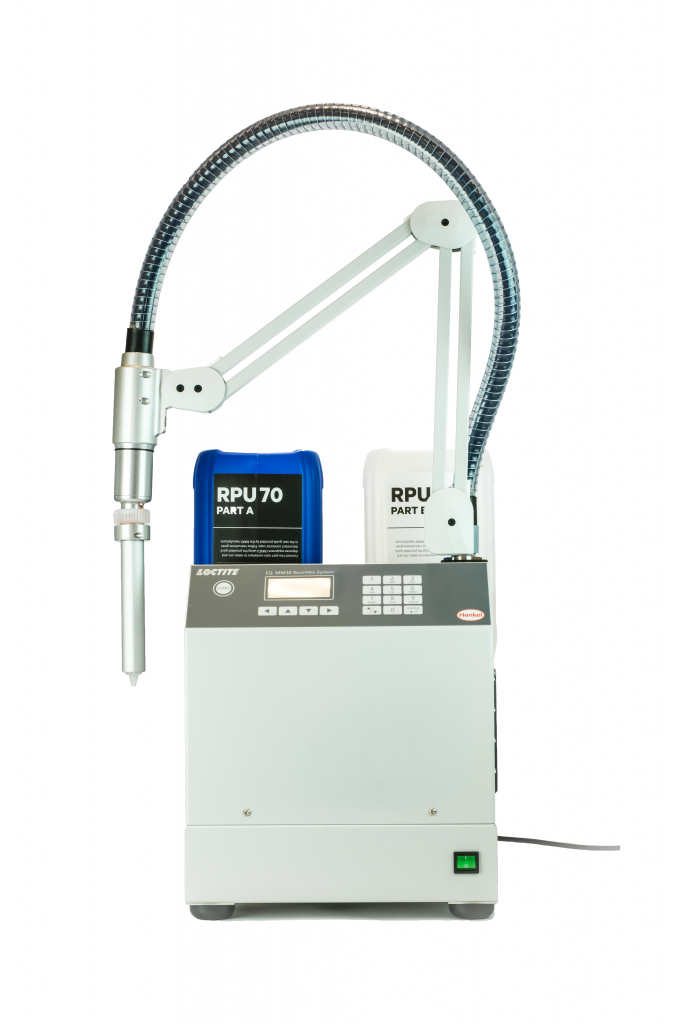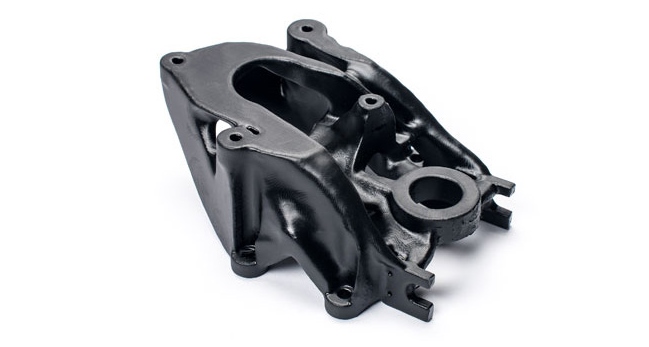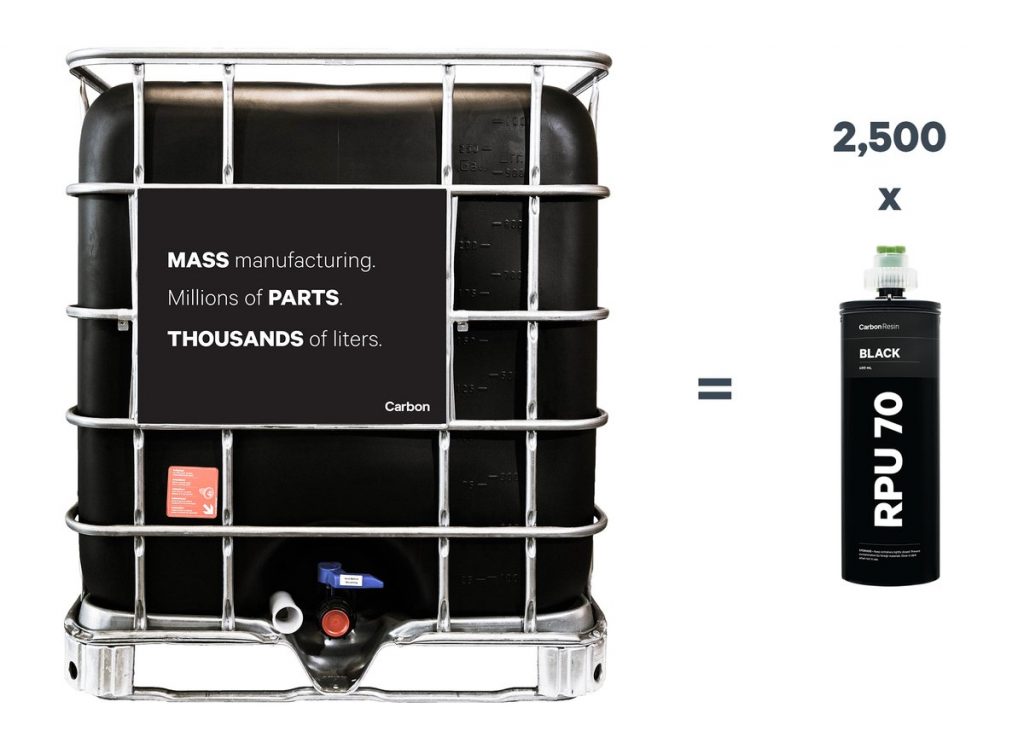Carbon, the firm famous for commercialization of continuous liquid interface production (CLIP) 3D printers, has announced a materials program and hardware additions for its latest SpeedCell system.
Aimed at the market for industrial scale manufacturing, the SpeedCell system is to acquire a meter mix and dispense (MMD) resin supply instrument complete with a large intermediate bulk container (IBC), developed in partnership with Henkel Adhesive Technologies.

The significance of the announcement
Luke Kelly, vice-president of Finance at Carbon, explains that prior to this release plastic barrels and IBCs had never been conceived of within 3D printing before, limiting the industrial applications of the technology. “This at-scale distribution method is a giant leap compared to the 400 ml cartridges or similar lower quantity distribution traditionally used for packaging polymer resins,” he states.
To encourage adoption, and best demonstrate the MMD’s capabilities, Carbon are also offering a 40% discount on dual cure rigid polyurethane (RPU 70) to be used in conjunction with the machine.

Another focus of Carbon’s announcement is providing a better cost to benefit ratio ahead of other printers. Kelly confirms that in the US, the cost of leasing the Carbon M2 printer annually is $50 thousand (including hardware, software and services), with a one time installation fee of $10 thousand.
Produced with industry in mind
The uptake of the MMD technology by Ohio-based product development company The Technology House has been immediate. Adidas, that has committed to using Carbon’s elastomeric materials and SpeedCell system for the production of Futurecraft 4D sneaker midsoles, is also inline to install the system, as is automotive manufacturer Ford.
Dr. Ken Washington, Chief Technology Officer at Ford Motor Company, comments that “Ford shares Carbon’s vision of 3D manufacturing and is actively working with Carbon to accelerate the implementation for automotive applications.”

Philip Adamson managing director at Paragon, another rapid prototyping partner of Carbon, notes the merits of Carbon’s 3D printing system, stating that “customers can go from design to production very easily with one technology, which significantly reduces development costs and eliminates tooling requirements.” Adamson adds that the materials program will provide “real scalability for higher volume batch production.”
After the SpeedCell
Carbon released its SpeedCell technology in March 2017, combining its first M2 series 3D printer together with a Smart Part Washer for the finishing of the 3D printed parts.
With its new technology, Carbon hopes to extend the use of 3D printing across even more industries, serving as a competitive alternative to the injection molding method of manufacturing, developed by Stratasys for their PolyJet machines.
For more of the the latest updates and information from this weeks TCT Show, subscribe to our free industry newsletter, like us on Facebook, and Follow us on Twitter.
Our featured image shows a Carbon intermediate bulk container ready to be used with large quantities of resin. Photo via Carbon.

